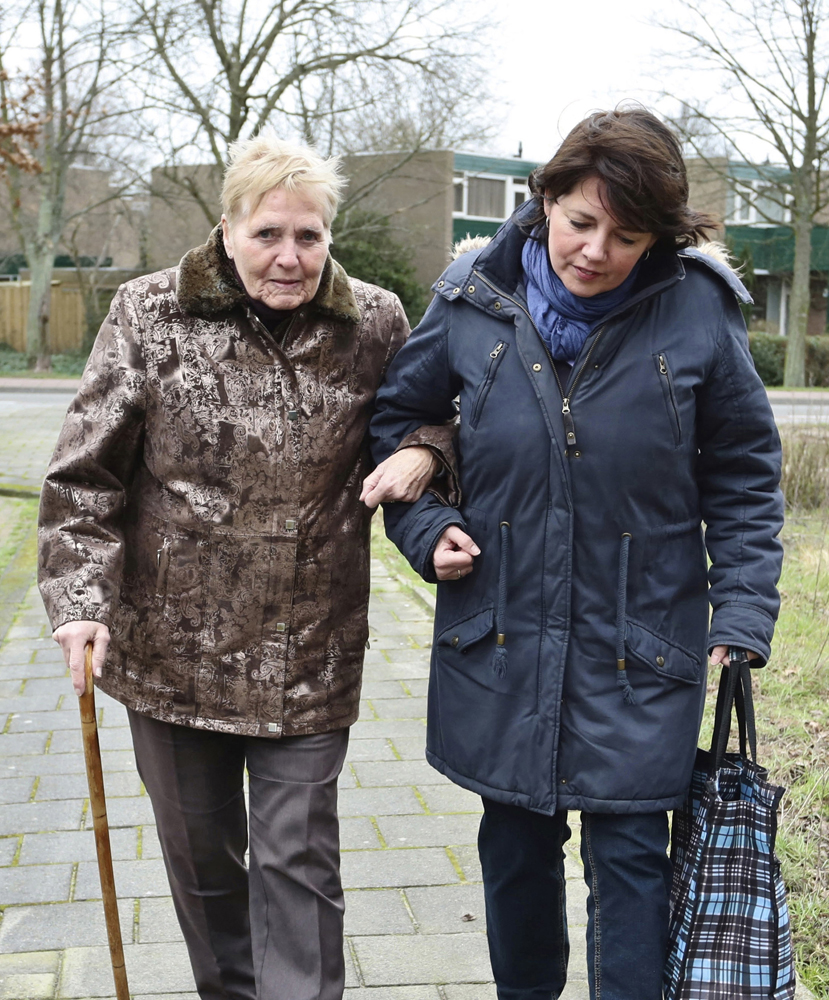Researchers have found that drinking diet sodas can cause heart disease, strokes and even dementia. They say it is safer to stick with something more simple like carbonated beverages or black coffee.
85% Of Older Americans Have Chronic Disease
According to the Centers for Disease Control and Prevention, 85% of older Americans have one or more chronic condition. This also applies to the one in five adults that AARP estimates serve as unpaid family caregivers. Sadly, many of them have Alzheimer’s disease and related dementia, which can be quite challenging to deal with. Fainting due to dehydration, falls and other forms of accidental trauma are reported to be the leading cause of hospitalization for Alzheimer’s patients, even though they are preventable. If you are caring for a loved one, it’s important you get some respite care as the stress can be intense, particularly if you are caring for someone with Alzheimer’s disease.
Carmel Foundation Hosting A Caregiver’s Guide To Finances February 22
The Carmel Foundation has some interesting seminars going on this month. On Wednesday February 22 the Alzheimer’s Association presents “Managing Your Money – A Caregivers Guide To Finances.” It will be held in Diment Hall at 2:30 and refreshments will be served. Regular readers of my blog know that both my father and my grandmother had Alzheimer’s disease when they passed away. The Alzheimer’s Association has a great group of people in the Monterey office. They also have a 24-hour hotline you can call at 1-800-272-3900.
Carmel Foundation Hosting A Caregiver’s Guide To Finances February 22
The Carmel Foundation has some interesting seminars going on this month. On Wednesday February 22 the Alzheimer’s Association presents “Managing Your Money – A Caregivers Guide To Finances.” It will be held in Diment Hall at 2:30 and refreshments will be served. Regular readers of my blog know that both my father and my grandmother had Alzheimer’s disease when they passed away. The Alzheimer’s Association has a great group of people in the Monterey office. They also have a 24-hour hotline you can call at 1-800-272-3900.
1 Million Nursing Home Patients Drugged Excessively
80% of nursing home residents on Medicare were prescribed psychiatric drugs during a recent nine-year period, according to a report from the U.S. Department of Health and Human Services (AARP Bulletin, January/February 2023, page 4). It is well known that there is a labor shortage and nursing staffs are cut pretty slim, but unfortunately this often results in nursing home residents being overmedicated with anti-depressants and anti-psychotics so that they rarely get up and move around or socialize. This is unfortunate as we have seen many of our clients put into nursing homes because of the high cost of home-care, and many of them pass away shortly thereafter. I believe this is due to a number of factors including depression, lack of social interaction, and a desire to remain in their own home. Psychotropics have long been criticized by nursing home resident advocates as “chemical straitjackets” used to sedate unruly residents, including those with Alzheimer’s and dementia. I have seen this first hand and it is very unsettling.
FDA On The Offensive Regarding New Alzheimer’s Drug
The Food and Drug Administration’s Commissioner Robert Califf has defended the agency’s approval of the new Alzheimer’s drug called Aduhelm. This follows an investigation by House Democrats which found close cooperation between the drug’s sponsors and regulators. The findings were made by the Oversight and Reform Committee and the Energy and Commerce Committee which found an unusual number of meetings between Biogen Inc. and the FDA. The FDA also co-authored with the company a briefing document presented to outside advisors, which is very unusual. Unfortunately, the drug was pulled off the market because Medicare refused to cover the expensive drug.
Walking May Reduce Dementia Risk
According to a large-scale study which was published in JAMA Neurology, walking 9,800 steps a day reduces your risk of cognitive impairment by up to 50%. Walking 3,800 steps a day improves your chances of avoiding dementia by 25%. Researchers monitored the daily step counts of more than 7,800 adults between the ages of 40 and 79 over a seven-year period. “I think this reinforces recommendations that we can make to people that walking is likely to be beneficial,” Dr. Ronald Peterson, director of the Mayo Clinic Alzheimer’s Research Center, told AARP Bulletin.
The Novel Idea Of Using Legos To Communicate With Dementia And Alzheimer’s Suffers
Author Loretta Veny published a book called “Being My Mom’s Mom,” in part to help her pay for her care for her mother who was suffering from dementia. She found a novel way to communicate with her mom: Legos. “When you put the Lego bricks out, it’s like they come alive again,” she says of her experiences with people who have dementia. She got the idea from her career in security management and training, when she used to put out the building blocks for emergency planning and tabletop evaluation exercises. She recalls a pivotal moment just after the doctor’s appointment when her mother was first officially diagnosed with dementia. In the car ride home, she gave her mom a bunch of Legos and said, “Build how you feel.” Her mother took the head off the Lego person in her hands and said to her daughter,” I’m afraid that years from now, I’m going to lose my head.” Ms. Veney says, “That was the most profound way to describe what was coming.” In the middle days of dementia, her mother could still build with Legos and create a story. Clicking Lego bricks together gave her a voice,” said Ms. Veney.
Monterey, CA Alzheimer’s Researchers Come Up With Pre-Emptive Strike
Some of the world’s largest drug companies are trying to develop preventative drugs for Alzheimer’s disease, prescribing drugs for high-risk patients that would reduce plaque on the brain and stave dementia off even before it starts. There have been so many failed attempts at developing successful drugs to delay the onset of Alzheimer’s disease that it’s hard to have new hope. But this attempt does look promising. Both Eli Lilly Co. and Eisai Co. are going to do large-scale drug trials on thousands of healthy adults, helping to push back cognitive decline before it even starts. By the time people show obvious signs of Alzheimer’s or dementia, there’s usually been so much brain damage that not a lot can be done. Recent brain-scan studies have shown that toxic proteins, including amyloid, can accumulate in the brain for two decades or more before they lead to dementia. Neurologists are hoping that removing amyloid before it causes damage will provide a huge impact on this disease.
Keeping Blood Pressure Low Reduces Alzheimer’s And Dementia Risk
Scientists know that having high blood pressure, particularly between the ages of 40 and 65, increases the risk of developing dementia later in life. Until now, it was not clear whether monitoring your blood pressure at home and then getting on meds to control it if it is high was helpful in reducing dementia in older adults.
“What is so exciting about our study is that the data shows that those people who were taking the blood pressure lowering medication had a lower risk of a dementia diagnosis than those taking a matching placebo,” said Ruth Peters, an associate professor at the University of New South Wales in Australia, who is also a senior research scientist at Neuroscience Research Australia, a nonprofit research organization, told KSBW News.
The new study, which was published recently in the European Heart Journal, looked at 28,000 older adults (with an average age of 69) who all had a history of hypertension. It found that a drop of about 10 mm/HG on the systolic and 4 mm/HG on the diastolic blood pressure reading at 12 months significantly lowered the risk of a dementia diagnosis.
In addition, as blood pressure dropped, so did cognitive risk, which held true to at least 100 mm/HG systolic and 70 mm/HG diastolic. When sex, age or history of stroke were taken into account, there was no difference in outcome.









